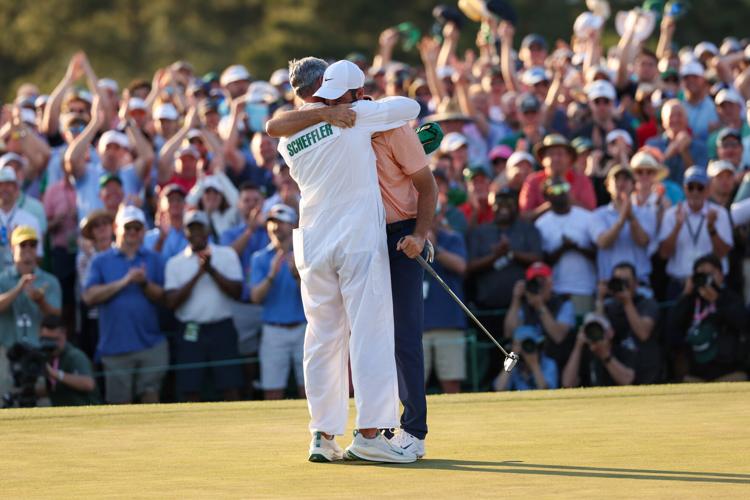Amidst the election-year craziness here in the U.S. and rapidly deteriorating conditions worldwide, who’s up for a politics-free OpEd column? If so, read on.
Last week, the 88th Masters Tournament was held at the Augusta National Golf Club in Augusta, Georgia. Augusta National is a demanding and exquisitely beautiful venue built by the legendary Bobby Jones. The tournament held there each year is rich in tradition, hosting the world’s best golfers in competition for the coveted Masters green jacket, along with lots of money and lifetime fame.
For golf fans, the Masters is more than sports entertainment — it’s a timeless, captivating event. I remember watching on a grainy black and white TV as a 10-year-old with my mother, cheering on her favorite, Dr. Cary Middlecoff (winner in 1955), surprised that a dentist could be such a good golfer. The lessons never cease.
It's often said that golf emulates life. It does, in many ways. And it occurs to me that we might be better off if life emulated golf. Some examples:
• Golf competition is a pure meritocracy — the best score wins. It’s fine for a golfer to have an engaging personality, cool duds and rabid fans, but the tournament winner is the one who completes 72-holes with the fewest strokes. That’s it. The only spin that counts on the golf course is the spin a good golfer puts on the ball to stop it on the green; media spin buys nothing.
• In golf, you must live with your mistakes. It’s embarrassing enough with everyone watching to hit a wild shot into the woods; but then you have to tromp in after it, and if you’re lucky enough to find the errant golf ball (thus avoiding the lost ball penalty), you have to try to hit it out of that mess, a move that often makes a bad situation worse. And when it’s all said and done, all of those poorly executed shots, penalties and compounded errors show up on your score card.
On Sunday, Colin Morikowa was tournament co-leader on the ninth hole when he let a slightly misdirected drive drift off the fairway into the pine straw and behind a tree. That hampered his second shot, leading to more trouble and ultimately to a double-bogey. He never recovered the lead.
• Similarly, competitive golfers must live with unlucky breaks as well. On Sunday, Max Homa, just two strokes back going into Augusta National’s infamous 12th hole, hit what looked like an excellent shot onto the green — but the ball took an unusually sharp forward bounce into the dense foliage behind the green — and disappeared. The unplayable lie and penalty led to a double-bogey on his score, and he also was unable to make up the deficit.
Unfair? Maybe — but that’s golf, and that’s also life. Politicians take note: finding someone or something to blame might improve the optics, but not the score.
• In golf, honesty is sacred. Competitors are responsible to keep track of their own scores, including penalty for rules violations, even if unobserved. Signing an incorrect scorecard after the round — even if unintended and inconsequential — is cause for immediate disqualification. It happened in 1968 when Roberto DiVincenzo made that simple mistake, and his Masters win — his only major championship — was erased.
That rigid standard is harder to maintain in informal weekend golfing, but the basic ethic remains: a golf match is a personal challenge, the golfer vs. the golf course (for mediocre golfers like me, the course usually wins), and a miscounted score is a lie to oneself.
• Golf a humbling game. On Saturday at Augusta, Tiger Woods — a light-years better golfer over his professional career than just about everyone whose ever played the game — shot a embarrassingly pedestrian 82. It happens, a reminder of human frailty, and it does not diminish the stature of those who excel.
So take note, elected leaders — and office managers, school teachers, business owners, mothers and fathers, little league coaches, Girl Scout and Boy Scout leaders, and all who influence our future generation in some way (I guess that’s all of us) — we mere mortals may have no hope of ever shooting 11 strokes under par at Augusta National, but there is a great deal we can learn from Scottie Scheffler and his competitors in last week’s Masters Tournament.
Strive for constant improvement in whatever is our life’s work. When we make mistakes, shake them off and live with the consequences, however painful. Tell the truth — to your playing partners and to ourselves. When bad luck strikes (it will) don’t waste time with excuses and don’t sink into the blame game — just deal with it.
And when we do, just slip on that imaginary green jacket, and nod to the imaginary crowd.





